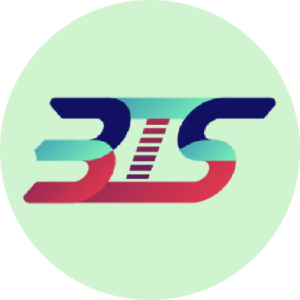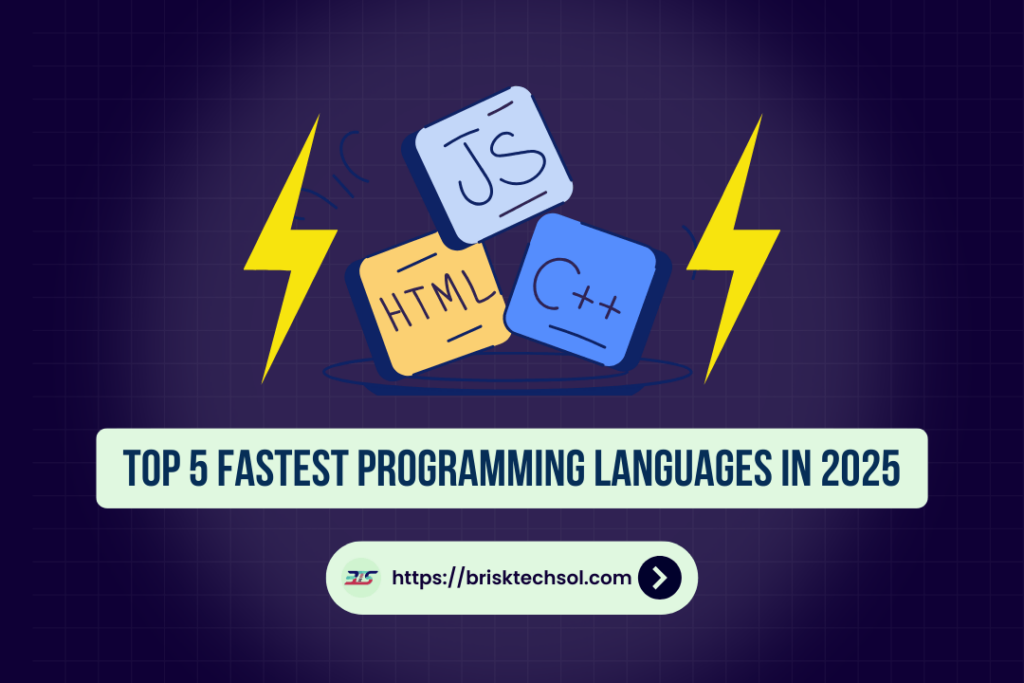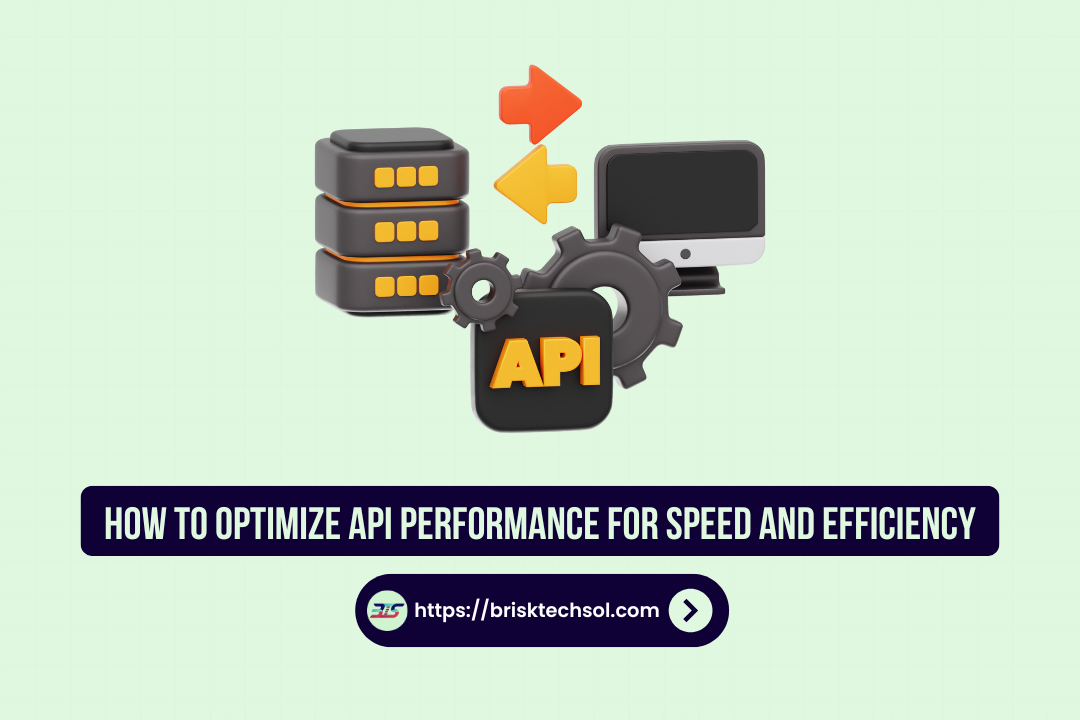When it comes to building fast, reliable software, the programming language you choose plays a crucial role. With so many options available, it’s important to consider performance, scalability, and your specific project needs. From C++ to Go, each language offers unique advantages for different use cases. In this article, we’ll explore the fastest programming languages and trends that are shaping the future of high-performance development. Let’s dive into what makes these languages stand out.
Why Speed Matters in Programming
Programming language speed isn’t just about how quickly code executes—it also impacts development efficiency, scalability, and end-user experience. Here’s why speed matters:
- Real-Time Applications: Applications like stock trading platforms and IoT devices need to process data in milliseconds to make accurate decisions. Delays could lead to financial losses or system failures.
- Gaming: High-performance gaming engines like Unreal or Unity rely on fast languages like C++ to render graphics in real time and maintain smooth frame rates.
- Big Data & Machine Learning: Data-driven fields demand languages that can process millions of operations per second, such as Rust or C++. For example, machine learning models often rely on optimized libraries written in C or C++.
Real-World Example:
Consider SpaceX’s Falcon 9 rocket systems. These systems run real-time calculations using C and C++ to ensure precision in trajectory and landing, proving how essential speed is in mission-critical scenarios.
Criteria for Measuring Programming Speed
Speed in programming is influenced by multiple factors:
- Compilation Time: The time it takes for code to compile into machine-readable instructions.
- Execution Speed: The runtime performance of the language. Languages like C++ are highly optimized for execution speed.
- Memory Management: Efficient memory allocation and garbage collection significantly improve speed.
- Concurrency: A language’s ability to handle multiple tasks simultaneously, essential for modern applications like web servers.
Table: Performance Comparison Based on Key Criteria
| Criterion | C++ | Rust | Python | Java | Go |
|---|---|---|---|---|---|
| Compilation Speed | Fast | Medium | Slow | Medium | Fast |
| Execution Speed | Very Fast | Very Fast | Slow | Fast | Fast |
| Memory Management | Manual | Automated | Automated | Automated | Automated |
| Concurrency Support | Medium | High | Low | High | Very High |
Pro Tip: For resource-intensive projects, languages with manual memory management like C++ provide greater control over performance. However, languages like Go excel in concurrency, making them ideal for scalable applications.
Top 5 Fastest Programming Languages in 2025
1. C++
C++ remains a powerhouse in high-performance programming. Its low-level capabilities and mature compiler optimizations make it one of the fastest languages available.
Key Features:
- Direct hardware access for ultimate performance.
- Extensive libraries for everything from graphics to numerical computations.
Use Cases:
- Gaming engines (Unreal Engine), video processing, and embedded systems.
- Benchmark Example:
- C++ consistently outperforms Python and Java in speed benchmarks, executing complex mathematical operations up to 20 times faster.
2. Rust
Rust combines the speed of C++ with enhanced memory safety. Its zero-cost abstractions ensure you don’t sacrifice performance for safety.
Key Features:
- Borrow checker to prevent data races.
- Built-in concurrency features.
Use Cases:
- WebAssembly, blockchain development, and system programming.
Interesting Fact: Many developers are migrating to Rust for its ability to handle high-performance tasks while reducing debugging time.
3. C
C, the predecessor of C++, is one of the simplest and fastest languages due to its minimalistic design.
Key Features:
- Direct access to memory and system-level APIs.
- Small binary sizes make it ideal for resource-constrained environments.
Use Cases:
- Operating systems (Linux Kernel), IoT devices, and embedded systems.
Example: The majority of the Linux kernel is written in C, showcasing its raw power and speed.
4. Go (Golang)
Go was designed by Google to balance speed and simplicity. It is known for its excellent concurrency support, making it a top choice for scalable systems.
Key Features:
- Native support for goroutines.
- Extremely fast compilation.
Use Cases:
- Cloud-based systems, distributed networks, and microservices.
5. Java
Despite being older, Java continues to be a strong contender for speed, thanks to Just-In-Time (JIT) compilation and JVM optimizations.
Key Features:
- Automatic garbage collection.
- Rich ecosystem of frameworks and tools.
Use Cases:
- Enterprise applications, mobile apps, and web development.
Table: Language Speed Rankings
| Language | Compilation Speed | Execution Speed | Best For |
|---|---|---|---|
| C++ | Fast | Very Fast | Gaming, Real-Time Systems |
| Rust | Medium | Very Fast | WebAssembly, System Dev |
| C | Very Fast | Very Fast | Embedded, OS Development |
| Go | Fast | Fast | Cloud Services, Web Servers |
| Java | Medium | Fast | Enterprise Applications |
Benchmarking and Performance Tests
Benchmarking offers an objective look at language speed. Performance tests typically measure:
- Execution Time: How long a specific algorithm takes to run.
- Memory Usage: The resources consumed by the program during execution.
- Concurrency Efficiency: How well a language performs under parallel tasks.
| Language | Execution Time (ms) | Memory Usage (MB) | Concurrency Efficiency |
|---|---|---|---|
| C++ | 1.2 | 15 | Medium |
| Rust | 1.5 | 20 | High |
| Go | 1.8 | 25 | Very High |
| Java | 2.0 | 30 | High |
| Python | 5.0 | 40 | Low |
Pros and Cons of Speed Optimized Languages
| Language | Pros | Cons |
|---|---|---|
| C++ | Extremely fast, widely supported. | Manual memory management. |
| Rust | Memory safe, modern tooling. | Steep learning curve. |
| C | Lightweight, unparalleled speed. | Lacks modern features. |
| Go | Simple syntax, great for concurrency. | Limited low-level control. |
| Java | Rich ecosystem, cross-platform compatibility. | Higher memory usage compared to others. |
Choosing the Right Language for Your Needs
Selecting the right programming language is crucial for achieving optimal performance and efficiency in your projects. Here’s a breakdown to help you decide:
- Real-Time Systems:
- Best Choice: C++ and Rust
- Why: Exceptional speed, low-level control, and precision for applications like gaming engines and hardware programming.
- Cloud Services & Web Applications:
- Best Choice: Go
- Why: Excellent concurrency handling and lightweight architecture, perfect for scalable systems.
- Enterprise Solutions:
- Best Choice: Java
- Why: Rich frameworks, cross-platform support, and scalability for large-scale applications.
- Embedded Systems & IoT:
- Best Choice: C
- Why: Lightweight, efficient memory usage, and direct hardware access.
Key Considerations:
- Execution Speed: Choose languages like C++ or Rust for maximum runtime efficiency.
- Memory Usage: Opt for C or Rust if your project requires fine-grained control over memory.
- Ecosystem Support: Consider languages with robust libraries and frameworks like Java for enterprise-grade solutions.
By evaluating these factors, you can align your choice with your project’s specific goals and requirements.
Trends in High Performance Programming
High-performance programming is continuously evolving to meet the demands of modern applications. Here are the key trends driving innovation:
- WebAssembly (WASM):
WebAssembly is transforming web development by enabling languages like C++ and Rust to run directly in browsers, offering near-native performance for web apps. - AI-Assisted Compilers:
New compilers powered by artificial intelligence are optimizing code more effectively than ever. AI-driven tools can suggest improvements, refactor code, and streamline performance, reducing development time. - Concurrency and Parallelism:
With the rise of multi-core processors, languages like Go and Rust focus on improving concurrency and parallelism, making it easier to write scalable, high-performance applications.
These trends indicate that performance optimization will become even more integrated into the development process, ensuring faster and more efficient software solutions.
Conclusion
In the end, picking the right programming language makes all the difference in creating fast and efficient software. As new trends like WebAssembly and AI-driven compilers continue to shape the industry, it’s exciting to see how these innovations can enhance performance. By staying updated on these changes and choosing the right tools for your needs, you can set your project up for success. Ultimately, the right language helps you build scalable and high-performing solutions that stand the test of time.
FAQ’S
What is the fastest programming language for web development?
Go is a top choice due to its lightweight concurrency model.
Is C++ faster than Python?
Yes, C++ is significantly faster because it is a compiled, low-level language.
Which programming language is best for real-time systems?
C++ or Rust excels in real-time systems due to their speed and control.
How does Rust compare to C in terms of speed?
Rust is nearly as fast as C but offers better safety and modern tooling.
Are interpreted languages inherently slower than compiled ones?
Yes, interpreted languages like Python generally lag in speed compared to compiled languages.









